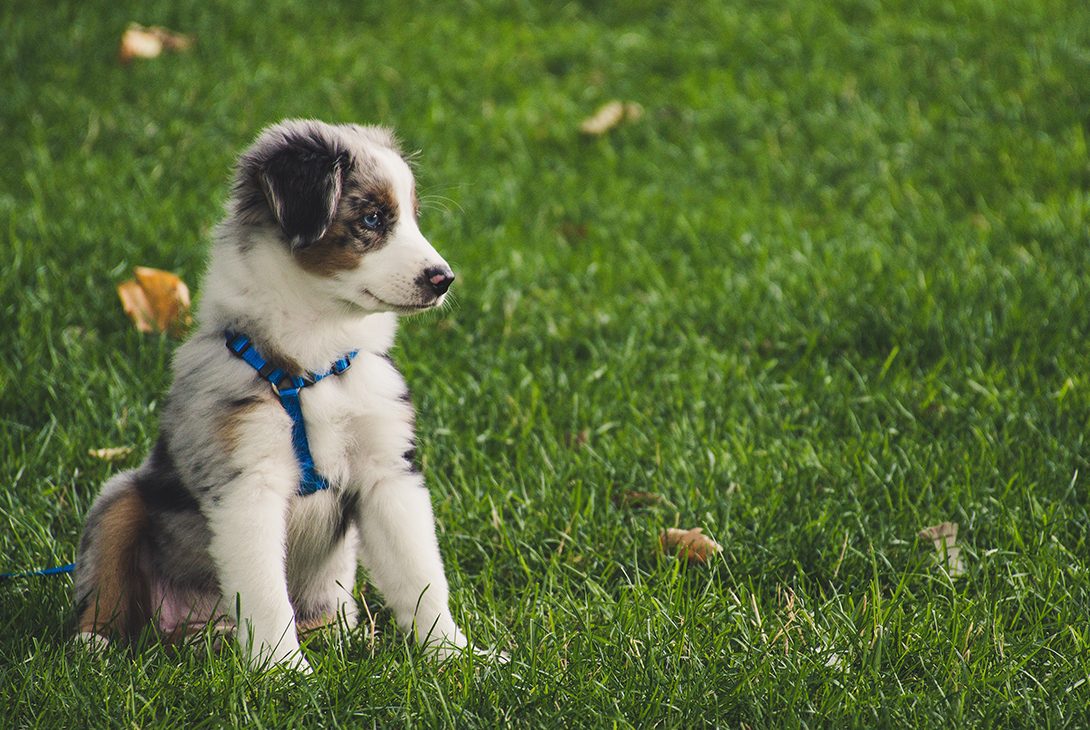
The importance of socialising your puppy dog during Covid-19
If you were one of the many families who gained a new member in the form of a puppy during Covid-19 then don’t underestimate the importance of socialising them properly during the pandemic.
For people who have been spending more time at home or even working from home as a result of the pandemic, then we also need to carefully consider the approach for when we transition back to “normal”.
As a veterinarian, my job is to improve and maintain the welfare and quality of life of my patients. You may think that this solely involves physical health but the emotional health of our patients also has a major impact on their welfare and quality of life.
A sore tooth, broken bone or itchy skin rash can be fixed, in which case it only has a temporary impact on the welfare of the patient. However, a patient who is anxious or stressed experiences lasting suffering. Every week I see dogs suffering as a result of poor socialisation and separation anxiety.
With a young dog you may only get one shot and often, once a dog develops inappropriate social skills or separation anxiety, it is very difficult, if not impossible to make positive changes.
When I use the word socialisation, I’m talking about getting your dog comfortable with different activities, people, places and puppies. Well, not just puppies but all types of animals that you might expect them to encounter later in their life.
Imagine as a child that you never met other humans, just dogs. Sounds awesome right?! But then you grew up and suddenly you had to talk to humans at the beach, in the park or waiting in the doctors surgery. How stressful right? Especially if the other humans are bigger than you, or more excited, or they want to share your best frisbee.
Right now, with the pandemic I really worry about future problems for dogs that missed out on early socialisation due to cancelled puppy schools and social distancing.
It’s important that socialisation happens early in a dog’s life. Even in their first weeks of life, a puppy is learning to interact with their litter. So, there are things that you can safely do from home to continue this process as soon as they join your family.
Even for clients who have “raised” a puppy before, I always recommend undertaking a puppy school for the social factor. If this isn’t possible due to the pandemic, then I’d urge you to find alternative ways to socialise your dog. My tip would be to have your dog socialise regularly with your friends or families dogs as long as they are healthy, vaccinated and well socialised themselves.
I also have some general advice for socialising your puppy whether the Covid-19 pandemic is affecting our normal life routine or not. The key is to encourage your puppy dog to enjoy a variety of life experiences.
- Take regular walks to irregular places. For young dogs, keep the walks short to make them fun experiences and avoid exertion.
Note: Talk to your veterinarian for specific advice about when it is safe to start walking and puppy school based on your dog's vaccinations and the level of infectious disease in the area you live in.
- Take regular car trips. Once again, keep them short. Long trips can be traumatic and tend to cause car sickness. Even on short trips, car sickness can be normal initially but often puppies grow out of it.
- Encourage your friends and family to meet your puppy. Children of course interact in a different manner to adults so once again, this is a new experience but always supervise and guide this interaction carefully.
- If you expect your dog will eventually meet other animals such as cats, rabbits or farm animals then make these supervised introductions early. A handy tip is to use a barrier such as a fly screen or fence to protect the smaller of the two!
- Grooming: Start grooming early, it’s going to be a necessary part of their life and it really helps to form bonds. Regular brushing is a great start. Use a quality, pet specific brush so that it’s not an uncomfortable experience. Maybe you normally use professional groomers and maybe that’s not possible due to the pandemic. In that case it’s up to your family but keep the experience varied. Grooming with different members of the family and in different parts of the house or garden can help with socialisation.
Regular brushing and grooming can also help prepare your dog for eventual vet visits as they become accustomed to being poked and prodded in different ways.
- Rewards! Throughout all these new experiences remember to use treats to create positive connotations or experiences. Pats work (almost) as well so you can use these in combination with a healthy snack such as liver treats.
Note: Cheese is not a treat! Two of my favourite patients reportedly only know three words: “Walkies, Cheese & Dr Andy”
But don’t let me catch you guys feeding cheese to your puppies!
Tune in next month for some tips to avoid separation anxiety and transitioning your pet back to “normal life” as we start to spend more time at work and out of the house again.
Xo Dogtor Andy